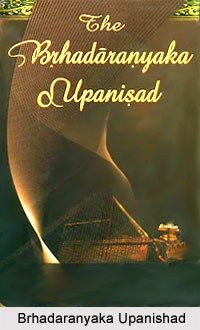 Brhadaranyaka Upanishad is the ancient and elementary or `Mukhya` part of Upanishad. Shatapatha Brahmana contains the Brhadaranyaka Upanishad and as Upanishad it has an independent status. The Brhdaranyaka Upanishad is the secondary extraction of the Brahamana text. Thus Brhadaranyaka Upanishad is one of the old texts among the Upanishadas. It is believed to be written on eighth to seventh century BC.
Brhadaranyaka Upanishad is the ancient and elementary or `Mukhya` part of Upanishad. Shatapatha Brahmana contains the Brhadaranyaka Upanishad and as Upanishad it has an independent status. The Brhdaranyaka Upanishad is the secondary extraction of the Brahamana text. Thus Brhadaranyaka Upanishad is one of the old texts among the Upanishadas. It is believed to be written on eighth to seventh century BC.
Brhadaranyaka Upanishad is related to the Shukla Yajurveda. This is the tenth of the `Muktika` canon of hundred and eight Upanishads and Adi Shankara made notable comments on it.
Brhadaranyaka Upanishad is famous for its philosophical assertions. Yajnavalkya, the ancient sage was the orator of Brhadaranyaka Upanishad. The meaning of Brhadaranyaka is `Great Forest Book`. It contains three parts namely Madhu Kanda , Muni Kanda (or Yajnavalkya Kanda) and Khila Kanda. The Madhu Kanda ascribes to the basic teachings of identity of an individual and expresses the original form of Jiva and the Atman. Muni Kanda narrates the conversation between sage Yajnavalkya and his wife Maitreyi. Khila Kanda consists of the description of different methods related to worship and meditation.
The philosophy of `Neti Neti`(neither this nor that) is the main doctrine of Brhadaranyaka Upanishad.



















